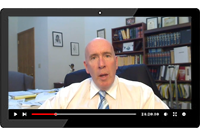Your child has reached an exciting milestone: buying their first car. Just like turning 18, 21, or starting college, it’s a step toward independence. Unfortunately, it’s also an opportunity for dishonest car dealerships to take advantage of them. For many young buyers, this is their first time buying a car, and they may not know how to spot red flags and mistakes.
If your kid went to the car dealership and was then scammed by the car dealership, there are steps you can take to help them recover and move forward. Both state and federal laws protect consumers from auto scams and there are ways to enforce their rights under the law. Read on to learn how to defend your child and yourself against auto dealer fraud.
The interest rate is what!?
Most car dealerships treat their customers with respect and decency. Some, however, will use shady tactics and misleading lies to make a sale.
Take Emily, for example. As a first time buyer, she bought a used car only to find herself caught in a scam involving unfair financing practices. While the dealership wasn’t directly at fault, the lender’s financing department manipulated the terms of the loan through a practice called backside financing.
This lender added unnecessary add-ons like life and GAP insurance to the loan, inflating the monthly payments by $100 per month. Over the course of the loan, this added nearly $11,000 to the final price of the car, turning what should have been a $17,000 purchase into an overwhelming $28,000 debt.
What happened to Emily is not an isolated case however. If you or someone you know think they’ve been the victim of auto fraud, here are some signs that you got scammed at the dealership:
- Backside Financing or Dealer Reserve: With this tactic, the dealership secures financing through a third-party lender, like a bank or credit union, which offers a lower wholesale interest rate. The dealership then marks up this rate and offers the buyer a higher loan rate, pocketing the difference as profit.
- Hidden fees: After negotiating a bottom-line price, you might find that the total cash price on your contract is higher than what you agreed to or what was advertised. The dealership may have added unexpected charges to the final price, like excessive “documentary fees” or “processing fees”.
- High-pressure sales tactics: High-pressure sales tactics are designed to short-circuit consumer choice and rush consumers into agreeing to unfair terms they wouldn’t normally accept. If you feel rushed to sign paperwork or are pressured to make a decision without fully understanding the contract terms, walk away.
- Negative Equity: If you’re trading your car in and it’s worth less than what is owed, the difference is called “negative equity.” Some dealerships will offer more for your trade-in than it’s worth, and then hide the negative equity by adding it to your new loan.
- Misrepresented vehicle history: A seemingly amazing price on a car might be hiding major problems like water damage or a lien. That’s because some scammers illegally remove negative information, alter the title, or move the vehicle across state lines where a certain brand isn’t recognized.
- “Packing” the contract: Some dealers will include unnecessary add-ons like extended warranties, rust proofing, or protection packages without your explicit consent. If the salesperson offers you options for free, make sure there is no charge for them in the contract details. If you find unwanted items in the contract, cross them out and reduce the total purchase price by that amount.
- Unrealistic trade-in value: If the dealership is offering a significantly lower value for your trade-in car than its actual market worth, it’s a major red flag. They might try to lowball you, hoping you’ll take the offer because of desperation or being uninformed.
- Unwillingness to provide documentation: Another warning sign is difficulty getting access to the vehicle’s title, Carfax report, or other important documents. A reputable dealership should be upfront about providing these documents.
What you can do about it
When someone is the victim of auto fraud, they may feel helpless and overwhelmed. Many victims blame themselves for not noticing the fraud. This is understandable, especially considering the breach of trust and financial loss involved.
As a caring parent, there are steps you can take. If your child got scammed buying their first car, here’s how to help your child recover and move forward.
- Review the Loan Agreement: The first step is to carefully examine the loan documents and highlight the added charges that weren’t discussed. If any terms are unclear, contact the lender and ask for clarification on what each charge is for.
- Contact the Dealer: If you believe the auto dealer committed fraud or engaged in deceptive practices, you must contact the dealership and give them an opportunity to correct the problem. This step must be taken before you can pursue legal action. Sometimes, dealerships will offer a resolution if their customers are well informed and persistent.
- Notify Your Bank or Payment Provider: If you’ve made any payments, contact your financial institution to stop the transaction and recover your funds if possible.
- File a Complaint: If the dealership isn’t responsive, you can file a formal complaint with your state’s consumer protection division or attorney general’s office.
- File with the Consumer Financial Protection Bureau (CFPB): The CFPB can investigate the lender’s practices, and if the dealership is found to be in violation of any laws, they may be required to offer a remedy.
- File with Federal Agencies: The Federal Trade Commission (FTC) enforces consumer laws that prevent deceptive business practices.
- Contact an Auto Fraud Attorney: If your child has already made a payment, working with a consumer protection attorney may be necessary. Legal professionals can help determine if the lender or dealership has violated any laws or if there’s an option for negotiating the loan terms or seeking restitution.
- Watch Your Credit Report: If the scam has impacted your child’s credit score due to inflated loan terms, they should regularly monitor their credit report and dispute any inaccuracies.
Auto fraud can be devastating, but you’re not powerless. By acting quickly, gathering evidence, and using the resources available, you can protect your child’s financial future and hold dishonest dealerships accountable.


